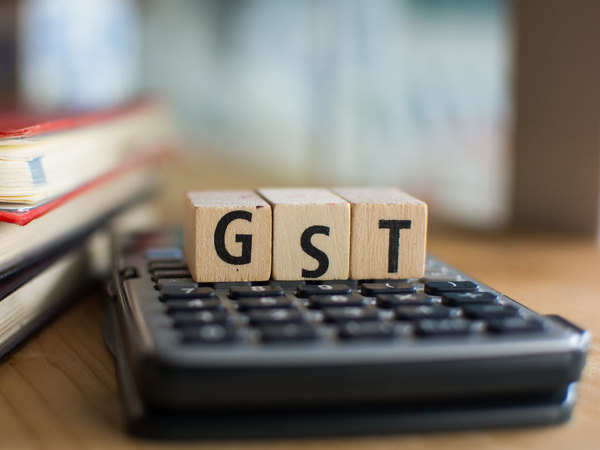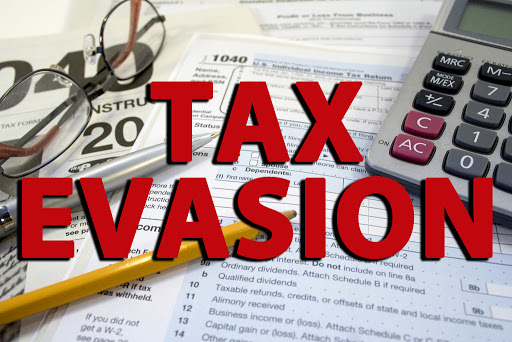1.0 Introduction
The term related party transactions is not a new term and is vigorously being used in the Income Tax as well as Accounting world. However when we talk about indirect taxes the tadka of related party transactions came with introduction of GST regime wherein special rules have been enacted for dealing with such transactions. Under the erstwhile indirect tax regime, no separate set of rules were there in this regard. In this article we shall discuss in detail about various aspects of applicability of GST on related party transactions.
2.0 Related persons under GST Law
The list of persons which come within the umbrella of the term ‘related persons’ are given in Explanation to Section 15 of CGST Act,2017 which for ready reference is reproduced as under:-
Explanation.—For the purposes of this Act,––
(a) persons shall be deemed to be “related persons” if––
(i) such persons are officers or directors of one another’s businesses;
(ii) such persons are legally recognisedpartners in business;
(iii) such persons are employer and employee;
(iv) any person directly or indirectly owns, controls or holds 25% or more of the outstanding voting stock or shares of both of them;
(v) one of them directly or indirectly controls the other;
(vi) both of them are directly or indirectly controlled by a third person;
(vii) together they directly or indirectly control a third person; or
(viii) they are members of the same family;
(b) the term “person” also includes legal persons;
(c) persons who are associated in the business of one another in that one is the sole agent or sole distributor or sole concessionaire, howsoever described, of the other, shall be deemed to be related.
The above definition is basically inspired from Rule 2(2) of Customs Valuation (Determination of Value of Imported Goods) Rules,2007 and Rule 2(2) of Customs Valuation (Determination of Value of Export Goods) Rules,2007, except that in point (iv) of Explanation (a), the percentage shareholding has been increased from 5% to 25%.
2.1 Meaning of Officer
The term “officer” has not been defined under GST Law, however definition of this term is available at Section 2(59) of Companies Act, 2013 which is given below:-
“officer” includes any director, manager or key managerial personnel or any person in accordance with whose directions or instructions the Board of Directors or any one or more of the directors is or are accustomed to act”
2.2 Meaning of Director
The term “Director” has not been defined under GST Law, however definition of this term is provided in Section 2(34) of Companies Act, 2013 which is as under:-
“Director” means a director appointed to the Board of a Company.
2.3 Meaning of Control
Sub-clause (iv), (v) and (vi) of Clause (a) of Explanation to Section 15 uses the words “controls” and “controlled”. The meaning of these words have not been given under GST Law.However we may take a cue from the definition of term “Control” as provided in Indian Accounting Standard 110 – Consolidated Financial Statements at para 5 to 9 out of which para 6 and 7 are relevant and reproduced below:-
6. An investor controls an investee when it is exposed, or has rights, to variable returns from its involvement with the investee and has the ability to affect those returns throughits power over the investee.
7. Thus, an investor controls an investee if and only if the investor has all the following:
(a) power over the investee (see paragraphs 10–14);
(b) exposure, or rights, to variable returns from its involvement with the investee (see paragraphs 15 and 16); and
(c) the ability to use its power over the investee to affect the amount of the investor’s returns (see paragraphs 17 and 18).
2.4 Meaning of Family
As per Section 2(49) of CGST Act,2017 “Family” means –
(i) the spouse and children of the person, and
(ii) the parents, grand-parents, brothers and sisters of the person if they are wholly or mainly dependent on the said person.
It is important to note here that spouse and children are always dependent, even if spouse is earning. However persons as covered under clause (ii) will be related person, if and only if they are wholly or mainly dependent on such person.
3.0 GST applicable on related party transactions even if they are without consideration
As we know under GST Law the taxable event is ‘supply’ of goods or services of both. The term ‘supply’ has been defined in a wide manner in Section 7 of CGST Act, 2017 and as per sub-section (1)(a) of said section, it includes all forms of supply of goods or services or both such as sale, transfer, barter, exchange, license, rental, lease or disposal made or agreed to be made for a consideration by a person in the course or furtherance of business. Thus ‘consideration’ is a precondition for any transaction to be regarded as supply under clause (a).
However an exception has been carved out in respect of transactions with ‘related persons’ as per Sec 7(1)(c) of CGST Act read with paragraph 2 of Schedule I of said Act, which mandates that supply of goods or services or both inter-alia between ‘related persons’ when made in the course or furtherance of business is treated as supply even if made without a consideration.
3.1 Meaning of supply made in the course or furtherance of business
“Business” is defined under Section 2(17) to include any trade, commerce, manufacture, profession, vocation, adventure or wager etc. whether or not undertaken for a pecuniary benefit. Business also includes any activity or transaction which is incidental or ancillary to the aforementioned listed activities. In addition, any activity undertaken by the Central Govt. or a State Govt. or any local authority in which they are engaged as public authority shall also be construed as business.
“Furtherance’ as understood in common parlance means the advancement of a scheme or interest, promotion, furthering, advancement, forwarding, improvement, development, betterment or stimulation. From the above, it may be noted that any activity undertaken included in the definition for furtherance or promoting of a business could constitute a supply under GST law.
Accordingly, in case any supply of goods or services is made to a related person in the course or furtherance of business such a supply would be taxable even if made without any consideration. For example Giving one floor in a building by holding company to its subsidiary company without rent / consideration would be regarded as supply of service. Further for valuation for purpose of levy of GST on such related party transactions separate rules have been prescribed which we will discuss at para 4.0.
3.2 Taxability of import of services from related persons
Import of services by a person from a related person or from any of his other establishments outside India, for business purposes, will be treated as supply.
For example, XYZ Inc. is incorporated in the US by X Ltd. along with Y Ltd. in India. Y Ltd obtains some consultancy services from XYZ Inc. without any consideration. Such a transaction viz import will be deemed to be a supply as XYZ Inc and Y Ltd are related persons and being import of services, IGST will be paid by Y Ltd. under reverse charge mechanism.
Further in cases import of services from a related person who is also an associated enterprise (as defined under Section 92A of Income Tax Act, 1961) there is a special provision in respect of determination of time of supply as provided in second proviso to Section 13(3) of the CGST Act,2017. As per said Section the time of supply shall be the date of entry in the books of account of the recipient of supply or date of payment, whichever is earlier. This is also a special rule as in other cases where tax is paid under reverse charge the time of supply of service is the date of payment or 61st day from date of invoice whichever is earlier.
3.3 Taxability of supply to employees
The term related person includes employees and thus supply to employees by the employers in the course or furtherance of business would be taxable even if made without any consideration. However in this regard, an exemption from taxation of gifts of Rs 50,000/- in value in a financial year (per employee) has been mandated in proviso to paragraph 2 of Schedule I of CGST Act.
The question arises as to what constitutes a gift. Gift has not been defined in the GST law. In common parlance, gift is made without consideration, is voluntary in nature and is made occasionally. It cannot be demanded as a matter of right by the employee and the employee cannot move a court of law for obtaining a gift.
Further as regards taxation of perquisites like free housing, bus service, meal coupon, telephone at residence, vehicle for official use, uniform, shoes etc is concerned as per press release dated 10-07-2017, the services by an employee to the employer in the course of or in relation to his employment is outside the scope of GST (neither supply of goods or supply of services).
The press release further states that supply by the employer to the employee in terms of contractual agreement entered into between the employer and the employee, will not be subjected to GST in terms of paragraph 1 of Schedule III of CGST Act,2017. Further, the input tax credit (ITC) scheme under GST does not allow ITC of membership of a club, health and fitness centre [section 17 (5) (b) (ii)].
It follows, therefore, that if such services are provided free of charge to all the employees by the employer then the same will not be subjected to GST, provided appropriate GST was paid when procured by the employer. The same would hold true for free housing to the employees, when the same is provided in terms of the contract between the employer and employee and is part and parcel of the cost-to-company (C2C).
4.0 Valuation of supply for purpose of levy of GST on related party transactions
As per Section 15(1) of CGST Act, the value of a supply of goods or services or both shall be the transaction value, which is the price actually paid or payable for the said supply of goods or services or both where the supplier and the recipient of the supply are not related and the price is the sole consideration for the supply.
Thus in cases where the supply is made to related persons, the transaction value shall be disregarded and the valuation will be made as per Rule 28, 30 and 31 of CGST Rules which provide that in such cases following values have to be taken sequentially to determine the taxable value: –
i. Open Market Value(Clause (a) of Rule 28)
ii. Sum total of consideration in money and further amount in money as is equivalent to the consideration in money.(Clause (b) of Rule 28)
ii. Value of supply of like kind and quality. (Clause (c) of Rule 28)
iii. Value of supply based on cost i.e. cost of supply plus 10% mark-up.(Rule 30). This shall apply if value cannot be determined under Rule 28.
iv. Value of supply determined by using reasonable means consistent with principles & general provisions of GST law. (Best Judgment method- Rule 31)
It is important to note here that in case of supply of services, the supplier may opt for Rule 31 ignoring Rule 30. Further it has been provided that if the recipient is eligible for full input tax credit, the invoice value will be accepted as open market value / taxable value.
It has also been mandated that where the goods being supplied are intended for further supply as such, by the recipient, the value shall, at the option of the supplier, be an amount equivalent to 90% of the price charged for the supply of goods of like kind and quality by the recipient to his unrelated customer.
4.1 Meaning of open market value
Open Market Value means the full value of money excluding taxes under GST laws, payable by a person to obtain such supply at the time when supply being valued is made, provided such supply is between unrelated persons and price is the sole consideration for such supply.
4.2 Meaning of supply of like kind and quality
Supply of like kind & quality means any other supply made under similar circumstances, is same or closely resembles in respect of characteristics, quality, quantity, functionality, reputation to the supply being valued.
5.0 Concluding remarks
Under the Income Tax Act, 1961 special provisions in respect to related party transactions has been in existence since long and main purpose of such provisions is to curb and plug tax avoidance/ evasion. Special provisions have accordingly been incorporated under GST Law also wherein transactions with related person are taxable even if they are without any consideration.
In regard to applicability of GST on related party transactions in cases where consideration is involved, the transaction value will be disregarded and valuation will be made as per Rule 28 / 30 / 31 of the CGST Rules,2017.
Thus all registered persons should be cautious while transacting with related persons and valuation of such supplies should be made strictly as per CGST Rules in view of fact that such transactions will be seen with magnifying glass by the Revenue and any under valuation or non-payment of tax would invite litigation and demand from authorities at later date with interest and penalty. Further due care should be taken while drafting the employment contracts / terms and conditions of employment to include the various perquisites or facilities being provided to by the employer to its employees within its ambit.
***
[rainbow]Don’t miss the next GST Update / Article / Judicial pronouncement[/rainbow]
Subscribe to our newsletter from FREE to stay updated on GST Law
Resolve your GST queries from national level experts on GST free of cost.
Frah Saeed is a law graduate specializing in the core field of indirect taxes and is the Co-founder of taxwallah.com. She has authored many publications on GST and is into full-time consultancy on GST to big corporates. She as a part of taxwallah.com heads a team comprising of Chartered Accountants and Advocates and plays a key role in our mission to disseminate GST knowledge to all.




